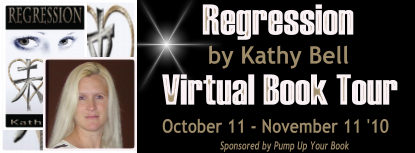You walk a fine line when using an already well-skilled protagonist in any story, and possibly stand to alienate some readers. But, even more worrisome than this issue is the possible loss of a story arc – that of character development. By character development, I mean the learning and growing type of development rather than the slow and steady revelation of the character traits of your main characters. The more competent your main character is to begin with, the less opportunity you have to teach her new skills.
Think of Sarah Connor at the beginning of Terminator. She is unassuming, very feminine, and physically fairly weak. During the story she develops into the woman who will train the leader of the future rebellion. Half of the movie would not have happened if she had been a fully prepared character. So, you must ask yourself, does your character need to be fully developed at the start, or can she learn some of her skills as she goes along?
There are two approaches which accommodate the use of a truly capable heroine. Science fiction lends itself to plot-driven stories anyway, and so often the stories populated with strong female characters are those of that genre. When a story is focused on the dramatic action, there is less of a need to ‘train’ your heroine, and more emphasis on the scenes taking place. If you are an action oriented writer who knows exactly where your story is going before you have even created characters to populate it, then the strong heroine will likely fit well into the story.
Another approach you can use with the well-equipped lead is to place her in a completely untenable position where all of her skills are of little use for, or even detrimental to, the realization of her objectives. For example, in my own story the main character is very skilled and capable because she has actually relived her life a number of times and is able to unconsciously call upon those memories for use in her current life. (Apparently I wasn’t quite obvious enough with that fact, because a few readers took a real dislike to the MC because of her skills, without getting the idea that she developed them through multiple lifetimes)). Even with all of that to call upon, she must give up the family that is dear to her heart because her skills and abilities are needed to save the world. In this case, her strength actually works against her goal of returning to the life she had lived before, and (I hoped) made the sacrifice that much more poignant.
In closing, I think the strong protagonist –female or otherwise – works well in a plot-driven novel but should perhaps be toned down in a story emphasizing character development because you will lose readership if your character begins the story with few flaws and thus has little distance to go to reach her objectives. If things come easy, there is no story to tell!
Kathy Bell's debut novel, Regression became an Amazon Bestseller in Science Fiction and Fantasy as a new release, peaking at #17 on that list and remaining in the top 100 for 28 days. The sequel, Evolussion has just come out and is already receiving rave reviews from early readers. Find Kathy on Twitter @kathybellauthor, on Facebook , or at the Infinion Series website. Follow her blog tour

No comments:
Post a Comment